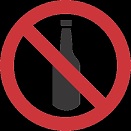What makes an alcoholic an alcoholic? Most of us know the answer, but from a clinical standpoint the official scientific criteria is a little bit more ambiguous, notably the efforts on the part of researchers when it comes to identifying underlying genetic factors that lead most at risk to over-consumption of alcohol and drug abuse. However, can alcoholism be avoided if we know individually whether we are susceptible in the first place? Would it change anything?
Probably–think about it, generally our lives are the definition of rock-bottom before we even get close to seeking out help. Of those most likely to develop an addiction as we understand it, who wouldn’t want to receive effective treatment as soon as possible and nip the problem in the bud? Bringing us one step closer to understanding what makes an alcoholic an alcoholic are the recent findings made by a conglomerate of research institutions over the period of a ten-year long project.
The collection of researchers found that a specific gene in mice (Gabrb1), when manipulated, caused them to overwhelmingly prefer alcohol over water–about 85% of their daily fluid intake was of alcohol-containing liquids. The project, made up of clinicians from five UK universities–Imperial College London, Newcastle University, Sussex University, University College London, and University of Dundee–and the Mammalian Genetics Unit at Harwell, introduced subtle mutations of the genetic code throughout the mice’s genome and tested for alcohol preference.
The findings, posted in an article released by Medical News Today, revealed that the Gabrb1 gene activation was so strong that the mice not only preferred alcohol over water, but “were willing to work to obtain the alcohol-containing drink by pushing a lever and, unlike normal mice, continued to do so even over long periods. They would voluntarily consume sufficient alcohol in an hour to become intoxicated and even have difficulty in coordinating their movements.” Furthermore, this change in genetic code is so drastic that the structure of the receptors in the brain actually begin to physically alter in a way that caused the mice to drink to an extent much longer than expected.
Joint lead author for the project, Dr. Quentin Anstee, Consultant Hepatologist at Newcastle University, says of continuing research with human subjects:
“We are continuing our works to establish whether the gene has a similar influence in humans, though we know that in people alcoholism is much more complicated as environmental factors come into play. But there is a real potential for this to guide development of better treatment for alcoholism in the future.”
What do you think?








